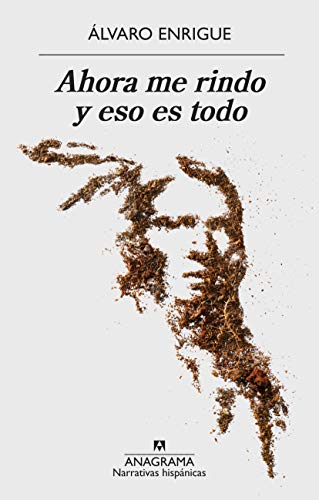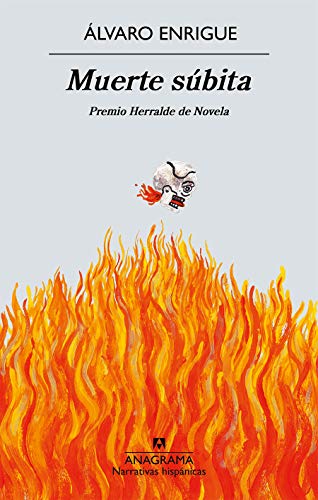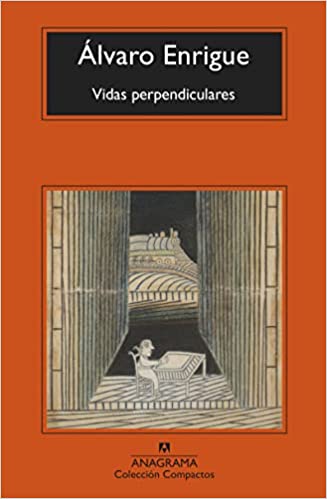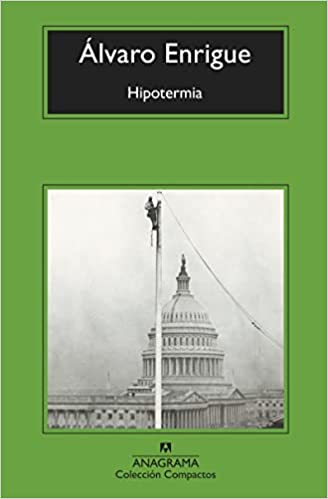Erected and consolidated as one of the great current Mexican writers, Alvaro Enrigue is a natural counterpoint to the also Mexican and current narrator Juan Villoro. The normal thing is to cite similar authors to conform that generational tune, of the literary in particular or of the creative in general.
But counterpoints explain creative spaces better than labels. Because light years away from any unifying intention, the imagination and will of a writer must be positioned as night and day to cover everything. Or at least to try.
In the Enrigue literature we find fantastic nuances towards the allegorical, towards the explanation, hyperbolic if necessary, of what happens, of what happens to us and moves us. But as a good avant-garde writer, one cannot cling to a single resource or setting.
And this is how Álvaro Enrigue pulls all his arsenal to do even the dreamlike existentialism, as already pointed out by the one replying that life is a dream. In the end, reading Enrigue is more than ever a journey, with the destination barely legible on the one-way ticket, or perhaps back. Because in good literature you never know if you are going or if you are coming.
Top 3 recommended novels by Álvaro Enrigue
Now I give up and that's it
In every imaginary border erected by man lies a strange paradox, a dichotomy between the "real world" of our subjective things and the delusional subjective fact of a non-existent wall erected like that border (until Trump arrived).
There is no better place than that no man's land, that threshold between countries set with the severity of the child's chalk that marks the playing field. That's where everything we could ever imagine happens. Because Álvaro Enrigue makes different characters from both sides of that line pass through the border, which is so real for the modern world as it is fictitious in its essence. The novel begins with the vindication of writing and the construction of a landscape. This landscape is on the border (between Mexico and the United States), and characters from the past and present will appear in it. Missionaries, settlers and others also appear, the Indians of the already civilized or even savage tribes.
A woman appears fleeing through the desert, and a soldier who is chasing some Indians who have stolen cattle through that desert. And also the myth of Gerónimo, the rebellious Apache, and a writer who travels those places in search of the traces of history ... And those and other characters that are added will end up coming together in this total and mestizo narrative, sum of western, short story historical, epic, legend and metal literature. The result: a work of enormous ambition and rare, dazzling perfection.
Sudden death
When one faces the arduous task of a recreation like the one in this novel, one can only think of stocking up on coffee as the least of stimulants. And then one has to rely on nonsense as a tool capable of unveiling the brightest metaphors. The rest is the responsibility of the muses, concentrated and offered to the author in this case before an unrepeatable novel.
On October 4, 1599, at twelve o'clock noon, two singular duelists meet on the public tennis courts of Piazza Navona in Rome. One is a young Lombard artist who has discovered that the way to change the art of his time is not by reforming the content of his paintings, but the method of painting them: he has laid the foundation stone of modern art. The other is a Spanish poet perhaps too intelligent and sensitive for his own good. They both lead dissipated lives to the point of mire: on that date, one of them was already a murderer on the run, the other would soon be.
Both are on the court to defend an idea of honor that has ceased to make sense in a suddenly huge, diverse and incomprehensible world. What would have to have happened for Caravaggio and Quevedo to play a game of tennis in their youth? Sudden death is played in three sets, with a change of court, in a world that had finally become round like a ball. It begins when a French mercenary steals the braids from Anne Boleyn's decapitated head.
Or perhaps when Malinche sits down to weave Cortés the most grim divorce gift of all time: a scapular made with Cuauhtémoc's hair. Perhaps when Pope Pius IV, a family man and tennis fan, unwittingly unleashes the wolves of persecution and fills Europe and America with bonfires; or when a Nahua artist visits the kitchen of the Toledo palace of Carlos I mounted on what seems to him the greatest European contribution to universal culture: some shoes.
Perhaps at the moment when a Michoacan bishop reads Tomás Moro's Utopia and thinks that, instead of a parody, it is an instruction manual. Sudden death the poet Francisco de Quevedo meets the one who will be his protector and partying companion all his life on a delirious journey through the Pyrenees in which an idiotic daughter of Philip II will be proposed to reign in France and Cuauhtémoc, a prisoner in the remote Laguna of Terms, dreams of a dog. Caravaggio crosses the square of San Luis de los Franceses, in Rome, followed by two servants who carry the painting that will make him the first rockstar in the history of art, and the Nahua Amatec Diego Huanitzin transforms the idea of color into European art even though he speaks in imaginary Spanish.
The Duchess of Alcalá attends the royal saraos with a silver box filled with serrano peppers and uses a verb that no one understands, but seems fearsome: «xingar». Sudden Death uses all the weapons of literary writing to draw such a dazzling and atrocious moment in the history of the world that it can only be represented by the most venerable and abused of technologies, the artifact whose golden rule is that it has no rules: His Majesty the novel. And we are facing a truly majestic novel, of enormous ambition and great literary quality.
Perpendicular lives
Understanding the reincarnation was only a matter of time. Now it is seen that everything is the same time line, at least under the vectors of a God who, perhaps unwittingly lets a child discover the thread of that line.
Of course, as we might suppose, the world will no longer be the same. Or at least it will not be from the notion of the passing of this novel.Jerónimo Rodríguez Loera is in appearance a Mexican child like any other, but he is also a monster: he completely remembers the cycle of his reincarnations and, with him, all human behavior .
By remembering their lives, Jerónimo will present to the reader the eternal game to which its participants are owed. Having already built the bridges on the model of the river-novel, Perpendicular Lives is a different formulation, a quantum novel, where the different times and spaces are simultaneous. Only in this way can the cavalry charge of Germánico César and the Laguense gardener, the Neapolitan mistress of Francisco de Quevedo and the Asturian agitator in Buenos Aires, the camel driver of the Mongolian steppes and the muralist who fails for being on the right, Pablo de Tarso coexist and Homo sapiens puppies programmed to impose their DNA with their clubs.
And from this collision of realities emerge the mysteries that Enrigue unravels: How is it that a Turkish boy, a tent weaver and destined for the Sanhedrin, invented modernity? How is it that the language's greatest erotic poet was also the most disgusting man of his century? How did we see the world before speech?
Other recommended books by Álvaro Enrigue…
Hypothermia
The journalist of "Dumbo's pen", convinced from a young age that one day he would be a great writer, listens to a caustic comment from his son about the great novel that never comes; in "Toilet", an electrician falls asleep in the empty house where he is working, and when he wakes up, a girl with a seductive voice calls him from the bathroom; Drake, the young garbage man abandoned by his wife from "Outrage" turns the garbage truck into a pirate ship for one night. And in "Extinction of the Dalmatian" and "The Death of the Author" the ironic, terrible great endings of two men, of two ancient languages that become extinct with them, are told.
But in Hypothermia there is much more. Because in this book, between closed, tight, round stories, which are ringed with each other and in doing so resignify themselves, there are three novels reduced to their climactic moments: that of the writer of self-help books who, corrupted by the disciplines he preaches, he destroys his emotional universe and ends up as a professor in Boston, hell; that of the World Bank executive who pretends so much that he is someone else and can only perceive reality when it is mediated by television, mobile phone or email; and that of a historian of private life who, spiritually dead, is resurrected as a cook, a corpse artist, the most glamorous art of contemporary times, and is the protagonist of the dazzling "Exit from the city of suicides" and "Return to the city of flirting”, with which it concludes but does not close this splendid model of narrative freedom that is Hypothermia, a novel made up of stories, according to the author's intention.





3 comments on "The 3 best books by Álvaro Enrigue"